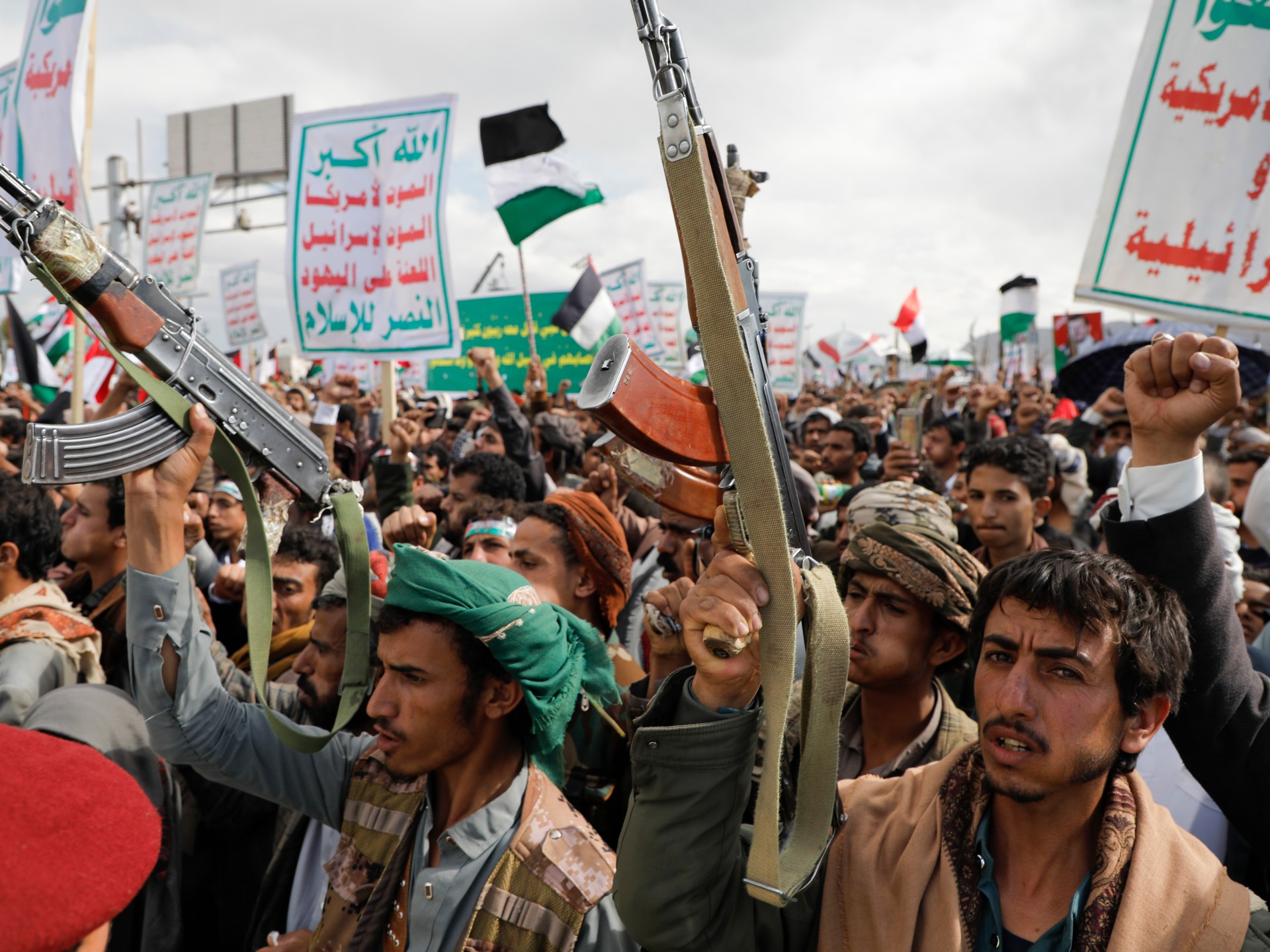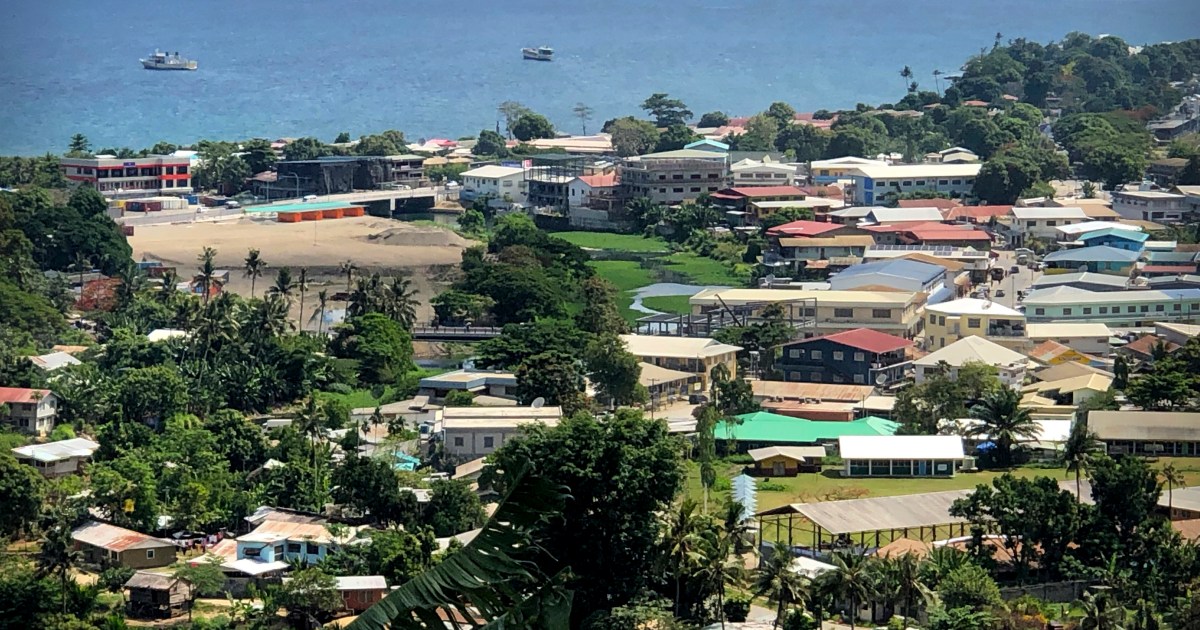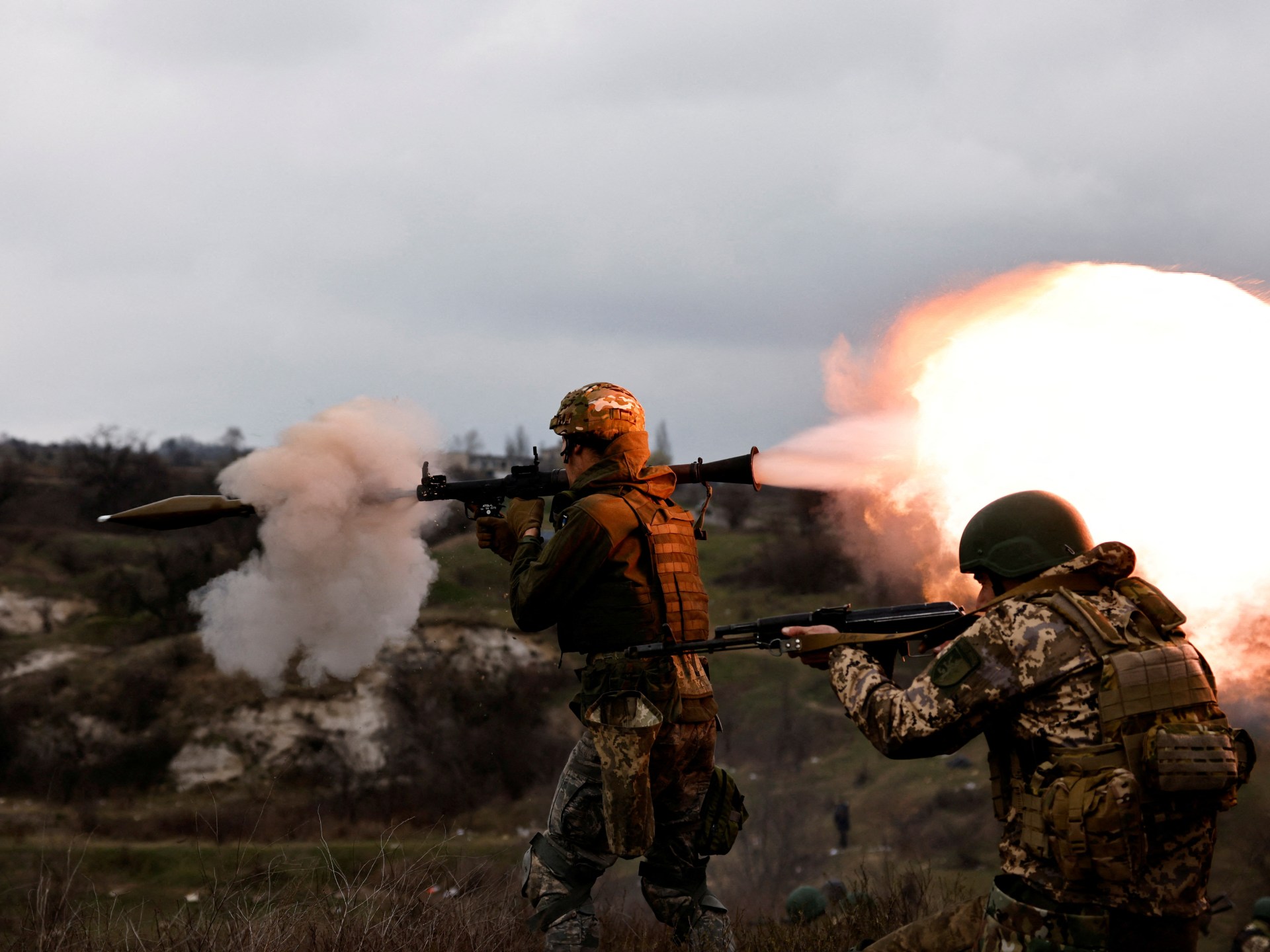As China, Africa woo each other, who gains more? It’s complex, say experts | Business and Economy News
Nkurunziza Alphonse knows that every time he goes out to protest, he could get arrested, even detained for a lengthy period in Kampala’s maximum security prison. It has happened before. Still, as he sat in a courtroom on Tuesday, watching another batch of protesters arraigned, Alphonse said he has no plans to stop marching.
The 25-year-old student is one of scores of people detained in recent months by Ugandan authorities for demonstrating against an oil pipeline project. The nearly 1,445km (898-mile) long East African Crude Oil Pipeline (EACOP) will stretch from Uganda to Tanzania’s coast, transporting crude. It is set to be the longest heated-oil pipeline in the world. However, activists say it will displace thousands, destroy wetlands and contaminate water sources.
China has faced protests over the pipeline.
State-owned China National Offshore Oil Corporation (CNOOC) is licensed to drill the oil, alongside French petroleum company, Total Energies. Several Chinese banks have also funded or plan to finance the project.
In June, Alphonse, whose village in northern Uganda will see the pipeline run through it, joined thousands across the continent and abroad to march in front of buildings of key stakeholders, particularly Chinese embassies.
“In my hometown, people are already losing their lands because of this – the government just comes and tells them to pack up and leave,” Alphonse, a member of the Students Against EACOP organisation, told Al Jazeera. “We are pressuring China and others because they are the ones that will bring the money for this – the Ugandan government can’t do it on their own. We want to bring the realities of the already affected people to them. We want to ensure [the Ugandan government] face a funding crisis.”
The backlash is a marker of some challenges China faces in its ambitious attempts to befriend African states, expand its infrastructural footprint, and wield diplomatic influence over the 50-plus countries it engages with on the continent. Even as President Xi Jinping fetes the continent’s leaders at a glossy summit in Beijing this week, the EACOP protests point to greater complexities in their relationship.
China’s moves in Africa have long faced scrutiny from Beijing’s rivals in the West, who have been losing political favour on the continent. Detractors – notably the United States – are quick to paint the partnership as one that largely benefits China to the detriment of African countries. However, experts say things are far from black and white.
Many accuse Western countries of predatory behaviour on the continent too, pointing to their colonial legacies and the fact that lenders like the World Bank and International Monetary Fund (IMF) are accused of exploiting African nations through loans. Many also argue that Beijing’s investments have helped Africa modernise and provided thousands of jobs.
“That narrative [of China exploiting Africa] makes sense for [Western countries] because of their declining influence in Africa,” said Jana de Kluvier, a researcher focused on China-Africa relations at the South Africa-based Institute of Security Studies (ISS). “But it skips over a lot of the nuance that’s in the very multifaceted relationship.”
Urbanisation love story
For more than a decade, China has been Africa’s largest trade partner. It is also the continent’s main creditor, pumping more than $170bn in loans and credit into nearly all 54 nations. For China, the benefits lie in the diplomatic influence it is sure to command at the United Nations, and with which it can counter its US-led Western rivals, de Kluvier said.
Beijing’s mega infrastructure investments in Africa also form a crucial part of its global Belt and Road Initiative. The ambitious project began in 2013 and aims to connect China to the rest of Asia, Africa and Europe through a web of ports, railroads and highways. China has also invested in energy production and telecommunications.
Several African cities now boast new Chinese-funded or Chinese-built railways, bridges and superhighways. That has aided movement and connection in many countries, enabling governments to shift away from old colonial-era railways that had largely become outdated and non-functional. The massive construction work needed has also provided job opportunities.
In Kenya, the Nairobi-Mombasa railway for the first time connected the two important cities in 2017 and halved the road journey duration of 10 hours. More than 25,000 Kenyans were employed to complete it. Nigeria’s Lagos and Gabon’s Port Gentil got deep sea ports, Ethiopia got the Hawassa garment-manufacturing industrial park – the list goes on.
Although China as a country is not comparable to Africa as a continent, the two entities have a shared story of needing to rapidly develop and reduce poverty levels, Hong Kong-based urban economist Astrid RN Haas told Al Jazeera.
China’s urbanisation trajectory was the fastest the world had experienced, lifting 800 million people out of poverty in 40 years. African countries are urbanising even faster, and the African Union wants big cities to be connected by rail by 2063.
“The way that China harnessed productivity was through connectivity, connecting the hinterlands to the main cities,” Haas, who is Austrian-Ugandan, said. “So for African countries, China is really the one to look at as an example.”
Chinese investment offerings are attractive to African countries because they are often quicker to materialise than Western promises. They are also not viewed through an “aid lens” and not bogged down by fiscal conditions or even “preaching”, as loans from Western institutions tend to be, writes South-Africa-based researcher Cobus van Staden of the China Global South Project.
Western countries have cut funding to some countries based on issues like elections or LGBTQ legislation. Beijing, on the other hand, has positioned itself as an “equal”, a fellow Global South country sidelined by the imperial West, van Staden notes.

White elephants
Trade between China and Africa is loaded in Beijing’s favour. African imports from China amounted to $173bn in 2023, but combined exports to the Asian country lagged at $109bn, according to the US-based Carnegie Endowment for Peace. While China is Africa’s largest trading partner, for China, the continent constitutes only 4.7 percent of its global trade, it noted.
To be sure, experts say there are aspects of the China-Africa relationship that benefit Beijing more when it comes to negotiating deals.
For one, African countries negotiate on a bilateral, one-on-one basis, not as a coherent front, weakening their abilities to collectively bargain, and even causing them to compete with each other in jockeying for Chinese investments.
De Kluiver of ISS said often, “there’s very little transparency on a lot of these investments”, making it hard to determine if China is fulfilling its promises, or if new commitments are being lumped in with older ones.
Then there are white elephant projects. Some constructions take millions of dollars but do not generate enough returns to repay the loans that funded them, making them unproductive.
One example may be Uganda, where Chinese loans partly helped build the 51km (32-mile) long four-carrier expressway connecting the capital, Kampala, to the Entebbe international airport in 2018.
The highway is reported to be the most expensive road per kilometre in the world and cost $450m in total – more than Uganda spent on all road construction work last year.
However, the road has limited access to towns that line its length, limiting economic activity. Uganda has a 40-year window to repay a $350m loan to China. By 2023, authorities had generated $20m.
Borrowing from China, private creditors, and multilateral institutions have contributed to countries like Zambia falling into a debt crisis. In 2020, the Southern African country defaulted on its debt. It owes about 12 percent of its external debt to China – the highest of any bilateral lender but lower than what Lusaka owes private creditors.
In March, Zambia’s official creditors, including China, agreed to cut interest rates and extend repayment timelines.
Debt pressures can sometimes manifest violently. In Kenya, protests turned deadly in June following President William Ruto’s attempts to increase taxes and offset the country’s loans, which are mostly owed to Western lenders.
Kenya, which struggles to profit from the Nairobi-Mombasa railway loan, owes about 17 percent of its external debt to China but the World Bank remains its largest creditor. The tax hikes, the Kenyan government said, were in efforts to meet the IMF’s conditions for a bailout fund.
International lenders face criticism on the continent for providing loans to desperate countries based on stringent conditions that critics say disproportionately affect the poor. But China has been criticised for its approach too.
Beijing’s detractors accuse it of “debt diplomacy” and claim that Chinese creditors deliberately lure African countries into unfavourable loan terms, trap them in high levels of debt, and then seize their assets as a way of extending China’s political dominance. China has repeatedly rejected the suggestions of debt diplomacy in Africa or other regions.
“These stereotypes of China are overhyped and I challenge the position that it’s not operating in good faith,” analyst Haas said, pointing out that African leaders and Chinese stakeholders do not have a long history together.
“China is actually a new investor and it has a lot to learn. I think they assumed that, because of Africa’s growth, there would be returns but China is now just learning that has not happened in this case.”
Indeed, Beijing appears to be cutting down on big-ticket infrastructure projects. Between 2021 and 2023, infrastructure funding fell from $16.5bn to $7.5bn.
Local resistance and African agency
Investments by Chinese investors – or Western partners – also face challenges when they fail to align with community-level priorities, particularly regarding the environment, says analyst de Kluvier – such as in the EACOP case.
Alphonse, the Ugandan student activist, accuses the government in Kampala and Chinese investors of not engaging in dialogue with local communities before making the decision to greenlight the pipeline.
“They didn’t do anything of the sort,” he said, pointing out that the EACOP project should be dropped regardless because of the likely effect on the environment.
About 14,000 households could lose their farm and residential lands in Uganda and Tanzania for the pipeline, which is roughly 100,000 people, according to advocacy organisation STOP EACOP. A third of the tube will pass beside Lake Victoria, Africa’s largest, opening its diverse ecosystem to possible leaks, according to a report by the United Kingdom-based charity, Oxfam.
Total Energies says it has consulted local communities and carried out impact studies. The company says it is set to compensate some 18,800 families and farmers it estimates will be affected.
“People’s properties are already being undervalued because of it. People are already suffering, they’ve lost their land and there was no dialogue over this,” Alphonse said.
Resentment over EACOP adds to simmering tensions among Ugandan business owners who have complained about competing with Chinese traders flooding markets in the country. The situation mirrors wider discontent with cheap Chinese-made goods that appear to overshadow made-in-Africa products across the continent.
Still the question of whether China enjoys a better deal than its African counterparts does not have a straightforward answer, according to analysts, especially as responsibility also falls at the doorstep of the countries’ leaders, Haas said.
“Both sides benefit and both sides lose and the onus should really be on our leaders for what they’re putting forward for China to invest in,” she said.
African leaders can be more proactive in negotiating productive investments and ensuring agreements benefit their people, whether they are about inaccessible highways or Chinese imports, the analyst said.
“I understand our history and the garbage that carries, but I do not think that limits our agencies,” Haas added.
“I don’t imagine China comes and says, ‘Oh, that’s the road I want to build for you.’ I think our leaders really are in the driving seat. We have to learn that our agency as Africans matters and we have to hold our leaders accountable for what they’re agreeing to on our behalf.”
Check out our Latest News and Follow us at Facebook
Original Source







